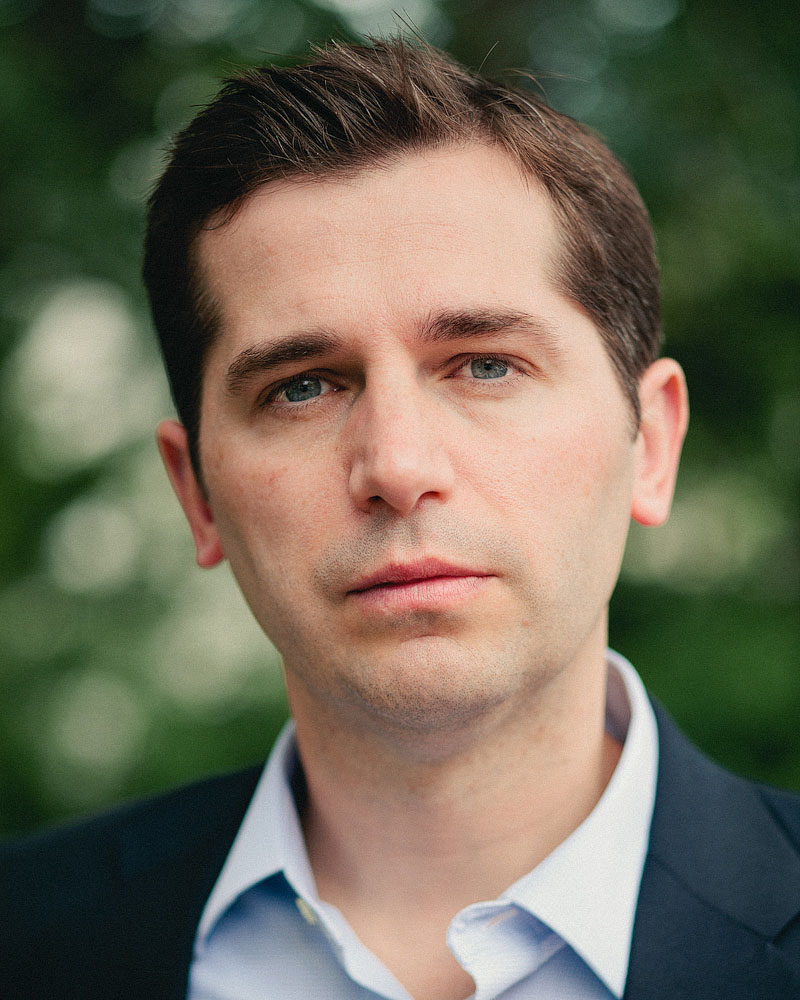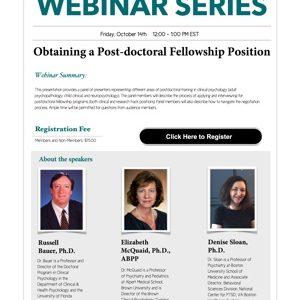Using New Technologies to Better Understand, Predict and Prevent Suicidal Behavior
$10.00
Presenter: Matthew K. Nock, Ph.D. received his doctorate in psychology from Yale University (2003) and completed his clinical internship at Bellevue Hospital and the New York University Child Study Center (2003). Nock’s research is aimed at advancing the understanding why people behave in ways that are harmful to themselves, with an emphasis on suicide and other forms of self-harm. His research is multi-disciplinary in nature and uses a range of methodological approaches (e.g., epidemiologic surveys, laboratory-based experiments, clinic-based studies, and real-time monitoring) to better understand how these behaviors develop, how to predict them, and how to prevent their occurrence. This work is funded by grants from the National Institutes of Health and several private foundations, has been published in over 250 scientific papers and book chapters. Nock’s work has been recognized through the receipt of four early career awards from the American Psychological Association, the Association for Behavioral and Cognitive Therapies, and the American Association of Suicidology; and in 2011 he was named a MacArthur Fellow. In addition to conducting research, Nock has been a consultant/scientific advisor to the National Institutes of Health, the World Health Organization’s World Mental Health Survey Initiative, the American Psychological Association, and the American Psychiatric Association DSM-5 Childhood and Adolescent Disorder Work Group. At Harvard, Professor Nock teaches courses on statistics, research methods, self-destructive behaviors, developmental psychopathology, and cultural diversity for which he has received several teaching awards, including the Roslyn Abramson Teaching Award, Petra Shattuck Prize, and the Lawrence H. Cohen Outstanding Mentor Award.
Overview: A major and long-standing challenge to understanding self-harm is that because these behaviors are transient in nature and cannot be induced for study in the laboratory for ethical reasons, until very recently, they have never been observed research studies. Obtaining data on the actual occurrence of a phenomenon is essential for understanding why it occurs, but has not previously been done in the case of suicidal/self-injurious behaviors. Toward this end, we have been conducting studies using electronic diaries and ambulatory physiological monitoring methods to measure suicidal/self-injurious thoughts and behaviors as they naturally occur in real-time. We have documented some of the first data on the real-time occurrence of self-injurious thoughts and behaviors, and our methods and results have been well-received by audiences at major conferences and universities throughout the country.
Objectives:
1) Describe new methods for improving the prediction of suicidal behavior.
2) Describe how objective behavioral tests can better predict suicidal thoughts and behaviors.
3) Explain how learning/conditioning-based approaches can be used to decrease the risk of suicidal behavior.
Description
Presenter: Matthew K. Nock, Ph.D. received his doctorate in psychology from Yale University (2003) and completed his clinical internship at Bellevue Hospital and the New York University Child Study Center (2003). Nock’s research is aimed at advancing the understanding why people behave in ways that are harmful to themselves, with an emphasis on suicide and other forms of self-harm. His research is multi-disciplinary in nature and uses a range of methodological approaches (e.g., epidemiologic surveys, laboratory-based experiments, clinic-based studies, and real-time monitoring) to better understand how these behaviors develop, how to predict them, and how to prevent their occurrence. This work is funded by grants from the National Institutes of Health and several private foundations, has been published in over 250 scientific papers and book chapters. Nock’s work has been recognized through the receipt of four early career awards from the American Psychological Association, the Association for Behavioral and Cognitive Therapies, and the American Association of Suicidology; and in 2011 he was named a MacArthur Fellow. In addition to conducting research, Nock has been a consultant/scientific advisor to the National Institutes of Health, the World Health Organization’s World Mental Health Survey Initiative, the American Psychological Association, and the American Psychiatric Association DSM-5 Childhood and Adolescent Disorder Work Group. At Harvard, Professor Nock teaches courses on statistics, research methods, self-destructive behaviors, developmental psychopathology, and cultural diversity for which he has received several teaching awards, including the Roslyn Abramson Teaching Award, Petra Shattuck Prize, and the Lawrence H. Cohen Outstanding Mentor Award.
Overview: A major and long-standing challenge to understanding self-harm is that because these behaviors are transient in nature and cannot be induced for study in the laboratory for ethical reasons, until very recently, they have never been observed research studies. Obtaining data on the actual occurrence of a phenomenon is essential for understanding why it occurs, but has not previously been done in the case of suicidal/self-injurious behaviors. Toward this end, we have been conducting studies using electronic diaries and ambulatory physiological monitoring methods to measure suicidal/self-injurious thoughts and behaviors as they naturally occur in real-time. We have documented some of the first data on the real-time occurrence of self-injurious thoughts and behaviors, and our methods and results have been well-received by audiences at major conferences and universities throughout the country.
Objectives:
1) Describe new methods for improving the prediction of suicidal behavior.
2) Describe how objective behavioral tests can better predict suicidal thoughts and behaviors.
3) Explain how learning/conditioning-based approaches can be used to decrease the risk of suicidal behavior.





Reviews
There are no reviews yet.